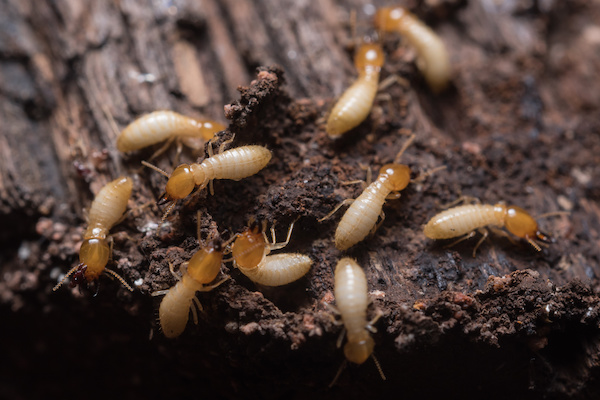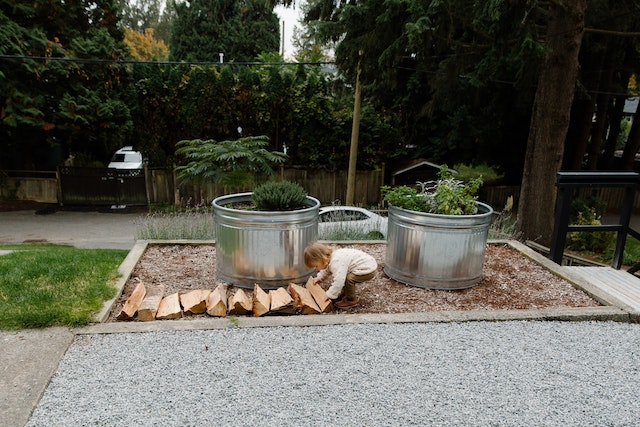
Sometimes, even the smallest adversaries can wield the mightiest blows.
When it comes to unwelcome guests, few are as insidious as termites in North Carolina. These wood-consuming intruders can silently compromise your home’s foundation, leaving you with a major headache and a hefty repair bill.
Set against the backdrop of North Carolina’s diverse environment, this blog takes you through the world of termites – their types, behaviors, and the steps you can take to protect your haven.
Types of Termites in North Carolina
From the Eastern subterranean termite’s subversive tunneling tactics to the Formosan termite’s voracious appetite, this guide is your comprehensive toolkit for understanding, preventing, and eradicating termite infestations in the Tar Heel State.
Eastern Subterranean Termite
Buried beneath the surface of North Carolina’s residential landscapes lies a relentless adversary – the Eastern subterranean termite. This unassuming yet highly destructive insect has mastered the art of stealth, infiltrating and destroying homes under our noses!
Establishing their colonies in the soil, these cryptic insects operate like an underground army, each member with a specific role. They build intricate mud tubes that serve as highways into your domain and a protective fortress against predators. These tubes connect their nests to the food source of choice – the cellulose-rich haven your home’s wooden foundations provide.
The Eastern subterranean termite’s modus operandi is simple in North Carolina: feast, multiply, and conquer. Their insatiable appetite for wood renders them a formidable foe. Slowly and stealthily, they chip away at the very structural integrity of Raleigh homes, sowing the seeds of long-term damage that can be financially and emotionally devastating for homeowners.
Their damage might already be extensive when signs of their presence become apparent. Unexplained cracks, sagging floors, and hollow-sounding wood are telltale signs that termites lurk within.
Formosan Termites
The Eastern subterranean termite is a stealthy infiltrator, but the Formosan termites give these little pests a run for their money. Swiftly spreading throughout the state, North Carolina is the new battleground for these highly invasive insects.
You thought the other guys were bad? Wait until you meet these guys!
What sets the Formosan termites apart is their incredible appetite. With colonies often reaching into the millions, they can cause extensive damage faster than you’d believe.
Formosan termites are experts at adapting and thriving in all kinds of conditions. Their complex carton nests protect shields and moisture regulators, keeping them safe from the elements and predators. This smart construction shields them from external challenges and helps them flourish wherever they decide to settle.
Combatting Termites in North Carolina
Dealing with termites isn’t easy, but we’re here to help you reclaim your home from these destructive pests! From top preventative measures to expert elimination, Innovative Pest Solutions is your partner in termite control in Raleigh, North Carolina.
Preventative Measures
As the age-old saying goes, prevention is better than cure – and in the battle against termites, this rings truer than ever. Here’s a list of tips to keep you safe from termites in North Carolina.

- Conduct regular and thorough inspections of your property, both indoors and outdoors, to spot signs of termite activity early.
- Control excess moisture by promptly repairing leaks, ensuring proper drainage, and maintaining adequate ventilation to discourage termite attraction.
- Elevate and keep wooden items like firewood and planters away from your home’s foundation to prevent direct wood-to-ground contact.
- Apply wood treatments with borates to exposed wood surfaces, making them less appealing as a food source for termites.
- Consider using termite-resistant materials like concrete, steel, and pressure-treated wood when building or renovating your home.
- Seal cracks, gaps, and openings in your home’s foundation, walls, and roof to deny termites entry points.
- Install physical barriers around your property’s perimeter, like metal screens or sand barriers, to hinder termite access.
- Maintain space between plants and your home’s exterior to prevent termites from using vegetation as a bridge.
- Keep mulch at least 6 inches from your home’s foundation, or opt for non-wood alternatives to discourage termite nesting.
- Collaborate with licensed pest control professionals to design a comprehensive termite prevention plan, including treatments and regular monitoring.
- If constructing, use termite-resistant construction methods and materials to create barriers during building to deter termite infiltration.
- Arrange annual termite inspections by trained experts to catch signs of termite activity early and implement necessary measures.
- Educate yourself about local termite species, behaviors, and habits to understand how to effectively prevent infestations.
Remember that prevention is vital when it comes to termite control in North Carolina. Implementing these methods can significantly reduce the risk of termite damage to your property. If you suspect termite activity or require expert advice, consult pest control professionals to devise an effective prevention strategy tailored to your situation.
Innovative Pest Solutions: Where Expertise Meets Fortification
In termite control, the stakes are high, and expertise is required. This is where Innovative Pest Solutions comes in! With an intricate understanding of termite behavior, we offer tailored strategies to combat termites effectively.
Termites in North Carolina are more than just a nuisance – they pose a severe threat, possibly undermining your home’s foundation. By combining proactive preventative measures with the expert guidance of Innovative Pest Solutions, homeowners can confidently fight against these destructive insects.
Termite infestations shouldn’t compromise the charm and value of your North Carolina residence! Contact us at the first sign of termites in North Carolina. We’re here to help and protect your living space.





